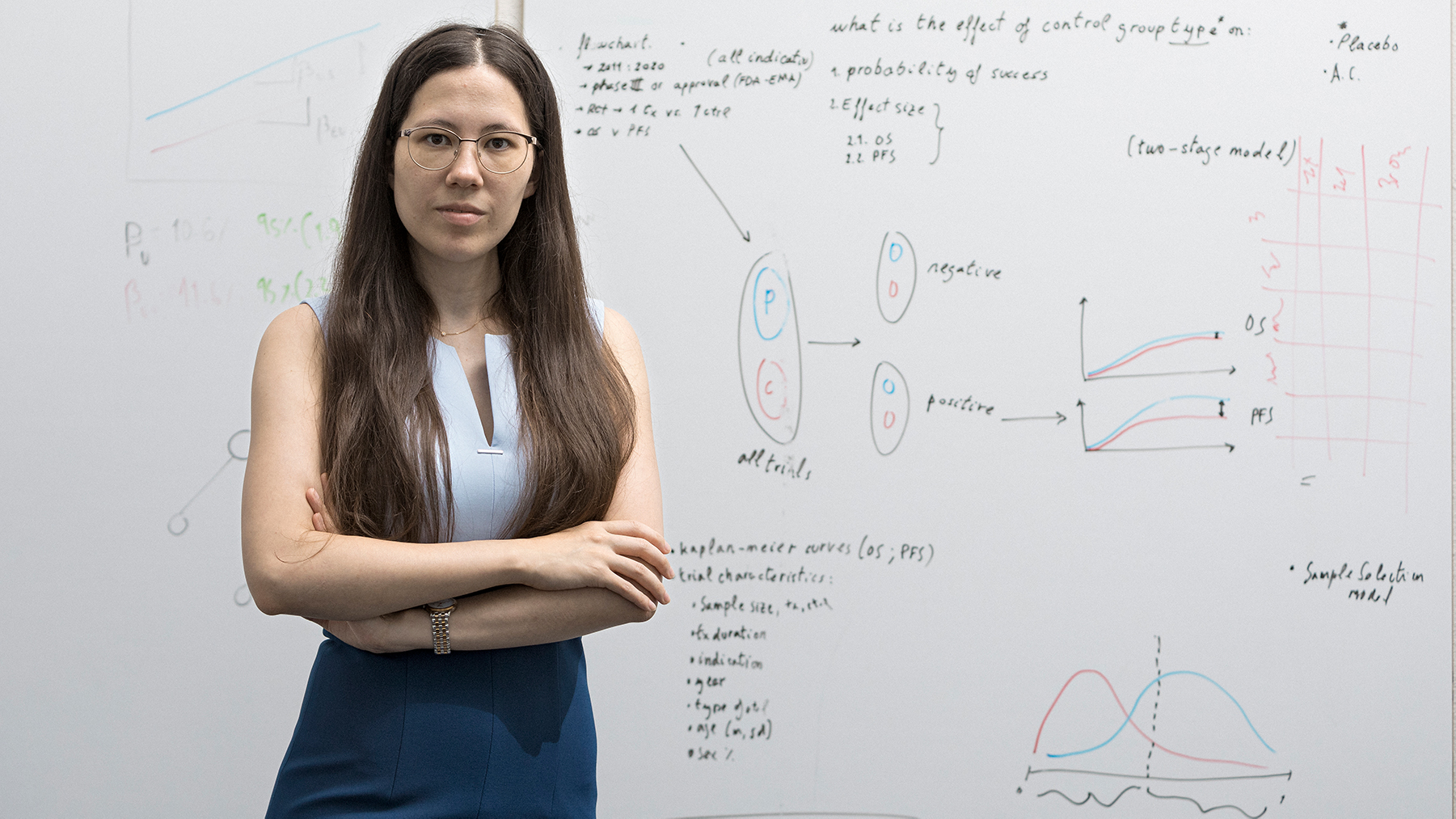“Improved access to medicine and innovative technologies”
Professor Vokinger, you have received the prestigious Latsis Prize for junior researchers. What does this award mean to you?
Kerstin Noëlle Vokinger: The Latsis Prize is a great and unexpected honor for me and my research team. We are very happy to have received the award, and extremely grateful to the Fondation Latsis and the Swiss National Science Foundation. The prize gives us renewed motivation to continue our efforts to develop solutions that improve general access to medicine and innovative technologies.
You are something of a multi-talent. You studied law and human medicine at UZH at the same time and received doctorates in both disciplines. How do you apply this combination in your research?
My research team is multidisciplinary, like me. Researchers on my team come from a variety of disciplines – law, medicine, health sciences, economics, statistics and computer science. We use our multi- and interdisciplinarity to analyze research questions holistically, or at least from several different perspectives.
The laudation for the Latsis Prize praises your use of interdisciplinary and methodological approaches that are unique in Switzerland. What is unique about your methods?
We critically examine new technologies such as artificial intelligence, novel cancer treatments or gene therapies. Even the best technology is of little use if it remains inaccessible to society. Equally, not all new technologies are useful for society – some may pose greater risks than benefits. These are the issues we are interested in: by researching the opportunities and risks of new technologies, for example their application, approval process and costs, we are building bridges between science and society. In doing so, we combine classical legal methodology with empiricism through technical, medical, economic and statistical analyses.
One area of your research is the legal regulation of economic sectors that are particularly relevant to society. How do you select your research topics?
Interest, curiosity and the desire to find the missing solutions to pressing challenges are what drive me and my team.
Which topics are particularly relevant for you at the moment?
In addition to the above-mentioned areas such as artificial intelligence, cancer treatments and gene therapies, we are currently investigating healthcare systems and the consequences of digitalization. These include the way Big Data makes it possible to re-identify people, or the tension between technological advances and protection of individuals’ personality rights, to name just a couple of examples.
As well as carrying out research analyses, you also provide concrete proposals for authorities, legislators and international organizations. Why is that important to you?
Our aim is to conduct practical, relevant research that serves society. In the areas of medicine and technology, there are many societally relevant open questions but the answers are often lacking. Our research grasps the nettle and tries to answer these questions. Based on sound analyses, we then develop concrete regulatory proposals for authorities inside and outside of Switzerland, as well as for legislators and international organizations. Our aim is to ensure society has access to innovative technologies such that the opportunities are maximized and the risks minimized.
On your website, you write that your work aims to improve patients’ access to medical care. How do you contribute to this?
We develop specific proposals for the regulation, approval, pricing and use of drugs and medical devices, for example, or the regulation of healthcare systems – always with the aim of providing optimal treatment for patients.
You analyzed the pricing of drugs for cancer treatments. What were your findings?
In the research project you mention, we were able to demonstrate that some cancer drugs have low therapeutic efficacy and are expensive. On the other hand, there are some which have high therapeutic benefits but low prices. We also found that the costs for cancer treatments have risen substantially in recent years, despite regulations in force in Switzerland and other countries that are intended to counteract rising costs.
Did you make specific recommendations in this area? What were they?
Yes. We proposed that therapeutic benefit should be given greater weighting in pricing processes. The therapeutic benefits should be reflected in the price – it is important that the financial “incentive” exists only for medicines with a high therapeutic benefit. Otherwise society ends up paying high prices for drugs that do not substantially improve patients’ health.
Another of your areas of interest is how to regulate the use of artificial intelligence, which you described as a “balancing act”. Why is that?
It’s a balancing act in that over-regulation or rules which are too restrictive unnecessarily inhibit innovation and progress, hindering access to important innovative technologies. But no or insufficient regulation is also fraught with danger. New technologies present society with opportunities, but also risks and potential damage, which we want to avoid. In short, the function of law is to boost the potential and minimize the risks of new technologies such as artificial intelligence.
What do you see as the challenges in this balancing act?
Regulating innovative technologies is challenging for a number of reasons. You have to take into account the various interests and weigh them up. Ideally, you also need some knowledge of or at least an understanding of how the technology works. Where I lack the necessary knowledge, I work with experts in my research team and external specialists.
What is your next big goal?
Developments in medicine and in new technologies are accompanied by many challenges for which we are trying to come up with possible approaches and solutions. Every research project brings us a little closer to our major goal – to improve society’s access to medicine and innovative technologies. The Latsis Prize is an acknowledgment that we are on the right track.
